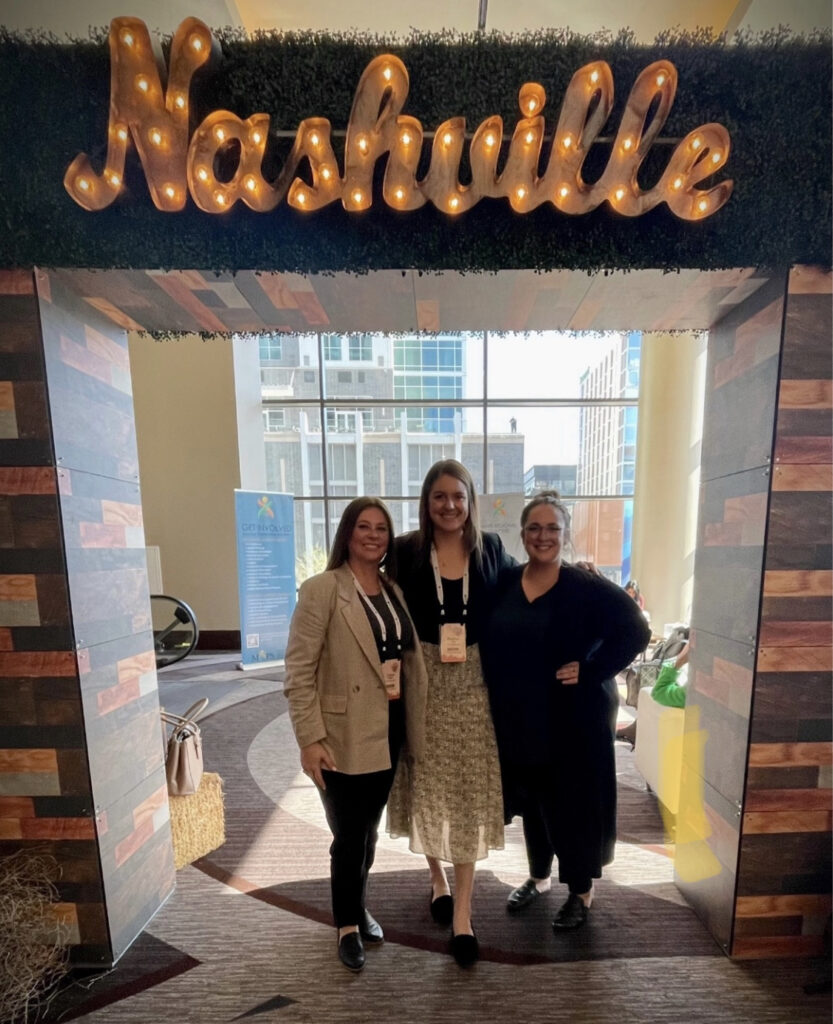The Medical Affairs Professional Society (MAPS) hosted their 2023 global meeting in Nashville last month, and the PharmaFinders team was excited to be attending for our second year in a row! This was a jam packed, 3-day event where we mingled with various other Medical Affair professionals while sharing ideas and best practices.
Last year we highlighted 5 common themes from the 2022 conference, ranging from artificial intelligence (AI), and digital health to increased patient centricity and Real World Evidence. One reoccurring theme that bled into this year was that AI and the digital health space isn’t going anywhere. New subscription services for AI engines are being tested in all functions of Medical Affairs, but it’s still too early to pinpoint exactly how AI will reshape the industry. The question of risk versus reward is at the forefront of conversations around this topic as well as security measures being taken. From our recruiting perspective, we took away that we don’t anticipate AI taking over or replacing a bunch of jobs, but the future is still in question.
That wasn’t the only subject that made an appearance last year and this year. Companies continue to strategize on how best to shape trials and patient care for meaningful outcomes. The focus is the patients and that isn’t changing, regardless of what therapy you’re supporting. In addition, metrics is still the tricky topic that nobody has a concrete solution for. There are no set standards across the board on how MSLs are evaluated but everyone can agree that something needs to be tracked to show value internally, and insights are the currency of MSLs.
We want to be able to share as much information as we can on what we learned from the exhilarating networking event! Below are several other popular topics from MAPS 2023:
- Employee retention: How do we prevent burnout and increase tenure within a Medical Affairs organization? A lot of time was also spent on discussing how to keep a team engaged in the post-covid era with a more hybrid/remote model.
- It’s even more important for leaders to build strong rapport individually with their employees. Along the same line, leaders must be mindful on how each person brings different strengths, different priorities, and different mindsets that could be generational (Here’s a fun stat: Only 28% of millennials plan on staying in a position more than 5 years).
- Everyone is still in limbo on the most effective way to deliver scientific information to KOLs, whether that is in-person, virtually, or hybrid. There’s pros and cons to both. One poll from a breakout session showed that a majority of MSLs felt that content development needed improvements. Some ideas discussed were co-developing materials with HCPs, MSL surveys on what your favorite deck to use is/what’s working/what’s not, having more committees reviewing this material, and listening to the MSL/HCP feedback on changes that should be made.
- Misinformation is being spread all over, especially on social media. There were multiple conversations around what information patients are trusting, and are they trusting that more than what their HCPs are saying. The million-dollar question is how do we bridge that gap then as Medical Affairs professionals? Do MSLs/HCPs become influencers, or should companies outsource social media influencers?
- Medical Operations is the new staple within Medical Affairs, but every organization is utilizing them in different capacities. There are so many ways Med Ops can impact an organization and increase value, but most companies don’t have enough head count to support the amount of work that is needed. We will see the Med Ops role defined more clearly in the years to come.
The last and most exciting topic that I want to make note of is the fact that Medical Affairs has an extremely bright future ahead of us! It was mentioned during the Future of Medical Affairs for 2030 session that “Medical Affairs will be the strategic leader at the center of clinical development and commercialization efforts, identifying and addressing unmet patient needs”. The value for Medical Affairs in clinical development within pharma/biotech/device companies keeps growing exponentially, and we can continue to expect more opportunities and openings for all MSLs and Medical Affairs professionals alike. Medical Affairs will continue to own the scientific aspect of patient engagement and provide a large impact for the medical field. We are thrilled to be a part of this community and continue to be impressed with the amount of growth and energy in Medical Affairs.
We can’t wait until Maps 2024!



